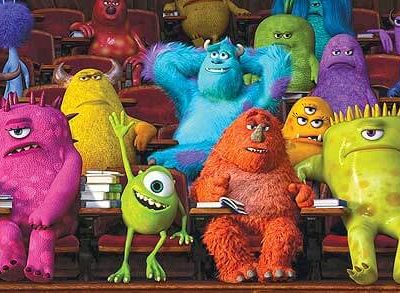I would like to begin by saying that I don’t enjoy Gen Eds. I came into college knowing what I wanted to learn, and I was tired of being told what to do with my time. When I signed up for my first semester of classes, I felt like I was unnecessarily coddled by the entire system. On my first day of Introduction to Psychology, there were over 300 students stuffed in an immense lecture hall. I realized that I might, in fact, be “just a number.”
I knew I was in for a rude awakening when I chose the University of Maryland. My high school graduating class barely filled 113 seats, and was the largest class on record at my small private preparatory school. I expected to have some difficulty assimilating, but while I was initially intimidated, I quickly adapted to the larger class size. In fact, I actually started liking psych more than my smaller, discussion-based classes. In the big lecture, I could sit in the back. I didn’t have to participate, raise my hand or be an entity. I could check Instagram and play Candy Crush all class. Yes, I’m still playing Candy Crush; I’m not a quitter, and it’s not called a saga for nothing.
Now, the class was hard. There is a common misconception that psychology is an easy major full of fluff courses, and I can personally confirm that this stereotype couldn’t be further from the truth. I wanted to believe that my grades suffered in the class because of its difficulty. Then, I tried to turn to the class size to blame that for my poor performance, but I knew the real reason; I wasn’t paying attention. It took me a while to realize it, but it wasn’t the format of the class that was toxic – it was how easily it allowed me to get lazy.

I didn’t pay attention because I would never get called on to speak. I didn’t take notes because it wasn’t required. I despised my hand being held when the administration was forcing me to take Gen Eds, but when I received the freedom to sink or swim in a class where the professor wasn’t a babysitter, I was sinking, fast. Don’t worry, I realize the irony.

In the second half of the course, I got it together and started sitting at the front of the classroom. There were some surprised faces; the ten percent of the class that sat in front and participated weren’t used to seeing my kind: the faceless, nameless slugs who came late, stared at their screens in the back and left early. People in the back didn’t converse or participate, but the people at the front were a community; the professor knew their names and they knew each other’s, they studied together, they asked questions and engaged with the material.
It was around this time that I met two of my best friends, both of whom are psych majors who took pity on me and helped me study for the tests. It was one of those late nights eating foul-smelling chips and wearing no makeup while my friends quizzed me that I realized that neither of them would be caught dead in the back of a lecture hall. I have found that these people, the real friends, are nearly always the kind of people who sit at the front and engage and try to learn, even if it’s just a Gen Ed.
When I first entered college, I wanted a superficial kind of freedom – to live alone, go to class when I wanted, and only take fun courses. I did find freedom, just not how I expected. I was free to be lazy; I was free to fail. Despite my friends’ help and my valiant efforts to get my grade up in psych, it is still my lowest at UMD thus far. Freshman year brings the freedom to fail, a kind of independence that is often overlooked. In college, there is no more safety net; so when you fall, and you will fall, feel blessed if you have made real friends – they will help you get up again, every time.




















